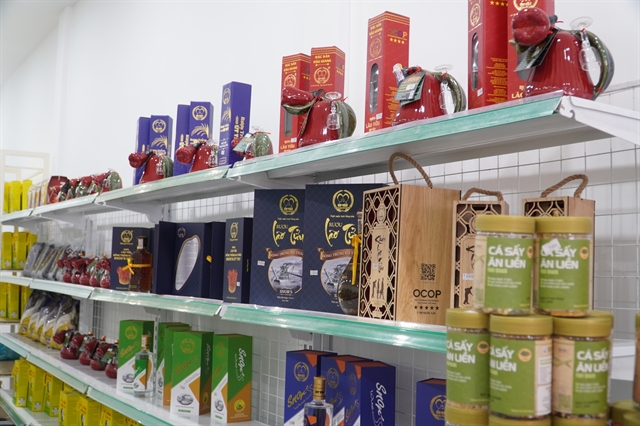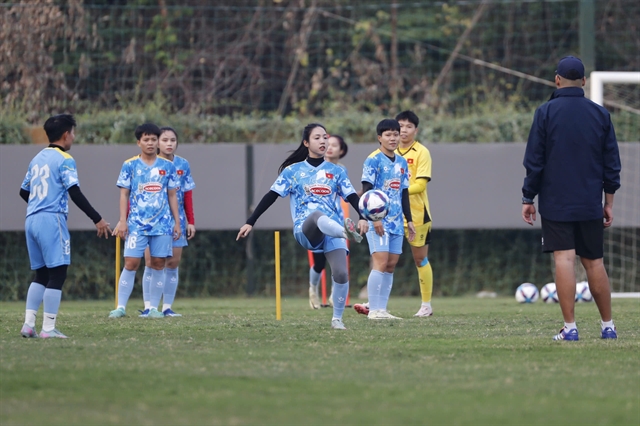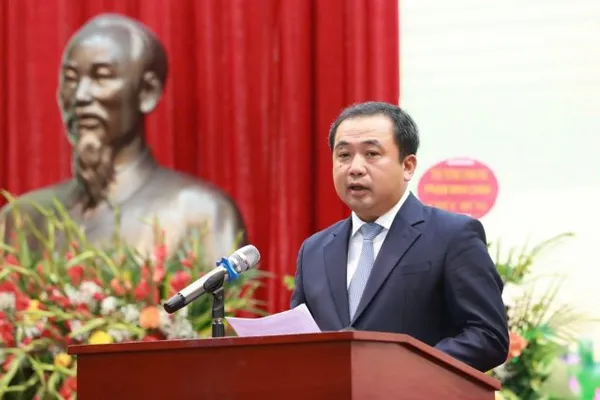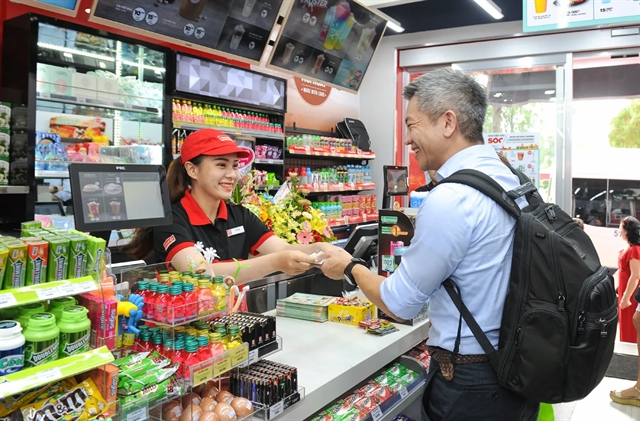 Politics & Law
Politics & Law
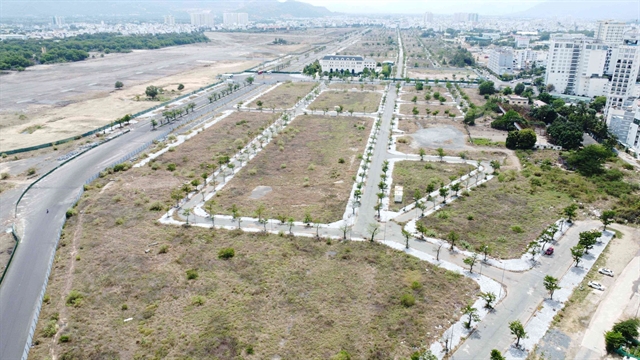
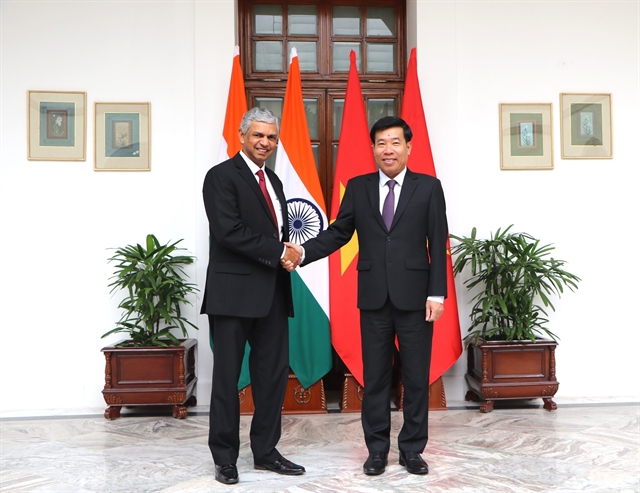 |
| Vietnamese Deputy Minister of Foreign Affairs Nguyễn Mạnh Cường (right) and his Indian counterpart Periasamy Kumaran at the 13th Political Consultation and the 10th Strategic Dialogue between the two countries in New Delhi on June 25. — VNA/VNS Photo |
NEW DELHI — Nguyễn Mạnh Cường, Deputy Minister of Foreign Affairs of Việt Nam, and his Indian counterpart Periasamy Kumaran co-chaired the 13th Political Consultation and the 10th Strategic Dialogue between the two countries in New Delhi on June 25, during which they proposed many measures to further foster bilateral relations.
During the Political Consultation, the two sides reviewed the bilateral cooperation and agreed that the Việt Nam–India relationship is witnessing positive developments, marked by strong political trust. They noted that high-level agreements, particularly the outcomes of Prime Minister Phạm Minh Chính’s state visit to India in August 2024, are being effectively implemented.
The two sides consented to further strengthen the sound political ties across all levels and channels, and expand cooperation in the Party channel, affirming that regular exchanges between the two ruling parties form an important foundation for maintaining stability and deepening the bilateral relations.
They also agreed to closely coordinate preparations for high-level visits in 2025, thus creating a significant milestone to usher in a new development phase of bilateral relations, as the two countries prepare to celebrate the 10th founding anniversary of their Comprehensive Strategic Partnership (2016–2026).
Defence and security cooperation is a key strategic pillar of the bilateral relationship, they stressed, stressing the need to further expand cooperation in training and technology sharing, and promote defence industry cooperation in the time to come.
While acknowledging the positive growth in two-way trade in recent years, which reached nearly US$15 billion in 2024, the two sides held that this figure still falls short of the full potential. They committed to adopting breakthrough measures to broaden the scope of cooperation and further boost trade turnover in a more balanced and mutually beneficial manner, towards better responding to fluctuations in global trade and contributing to ensuring a stable and sustainable supply chain.
The two sides also welcomed the growing investment by businesses from each country into the other’s market, particularly in areas of strength such as strategic infrastructure, energy, renewable energy, green transition, and strategic and emerging technologies like artificial intelligence (AI) and semiconductors.
Cường revealed that Việt Nam is vigorously advancing its strategic breakthroughs, particularly in science-technology and private economic sector development. He expressed hope for closer cooperation between the two sides in science and technology.
The two sides will also actively tap into the potential for partnership in emerging and strategic technologies such as AI, rare earths, and IT; and push ahead with the establishment of joint research funds with the aim of achieving technological self-reliance.
Both sides highly valued the deep-rooted cultural and religious connections between the two countries throughout history, viewing them as an important foundation for further strengthening people-to-people exchanges and cooperation in tourism, culture, and education.
Cường thanked the Indian side for its continued support for Việt Nam in training, scholarship provision, and assistance to localities through “Quick Impact Projects” (QIPs).
The officials also exchanged views on regional and international issues of mutual concern, and shared common perspectives on current security challenges, including terrorism, transnational crime, cybercrime, high-tech crime, and maritime security. They agreed to strengthen coordination to effectively address these challenges.
The two sides also shared assessments on the global and regional situation, and consented to further strengthen cooperation and mutual support at multilateral forums, thus contributing to promoting dialogue, upholding a rules-based regional and international order, and enhancing the role of multilateral institutions.
The Indian side reaffirmed its strong support for ASEAN’s central role and pledged to continue vigorously implementing its Act East Policy, with Việt Nam regarded as a key pillar. It also expressed desire to step up effective collaboration across various sectors with both ASEAN and the Mekong sub-region.
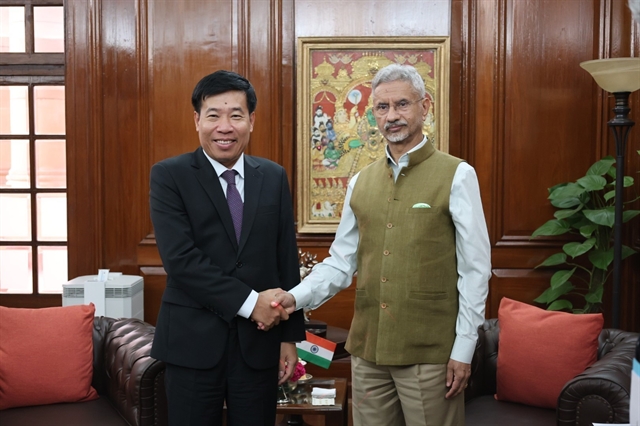 |
| Nguyễn Mạnh Cường, Deputy Minister of Foreign Affairs of Việt Nam, paid a courtesy call on Indian Minister of External Affairs S. Jaishankar on June 26. — VNA/VNS Photo |
On this occasion, Cường paid a courtesy call on Indian Minister of External Affairs S. Jaishankar, during which the Vietnamese official affirmed that Việt Nam attaches great importance to its relationship with India and consistently regards India as one of its most important partners.
He emphasised desire to work closely with relevant ministries and agencies of the two countries to effectively implement cooperation across key areas, particularly defence and security, trade, science and technology, culture, and people-to-people exchanges.
For his part, Jaishankar called for greater attention to cooperation in trade, investment, energy, and connectivity. He hoped that India and ASEAN countries will soon conclude the review of the ASEAN-India Trade in Goods Agreement (AITIGA). The Indian official agreed to hold the 19th session of the Việt Nam–India Joint Commission on Bilateral Cooperation at the foreign ministerial level in 2025.
As part of his stay in India, Deputy FM Cường also held meetings with Deputy National Security Advisor Pavan Kapoor, Deputy Minister of Commerce and Industry Rajesh Agrawal, General Secretary of the Bharatiya Janata Party (BJP) Vinod Tawde, and several Indian researchers and experts to discuss bilateral relations.
Earlier, Cường had working sessions with of officials of Mumbai, and representatives of the India–Việt Nam Chamber of Commerce and Industry (IVCCI) to bolster cooperation between Mumbai – a major economic and financial hub in western India – and Vietnamese localities, thus contributing to the diversified and substantive development of bilateral relations in the coming time. — VNA/VNS

